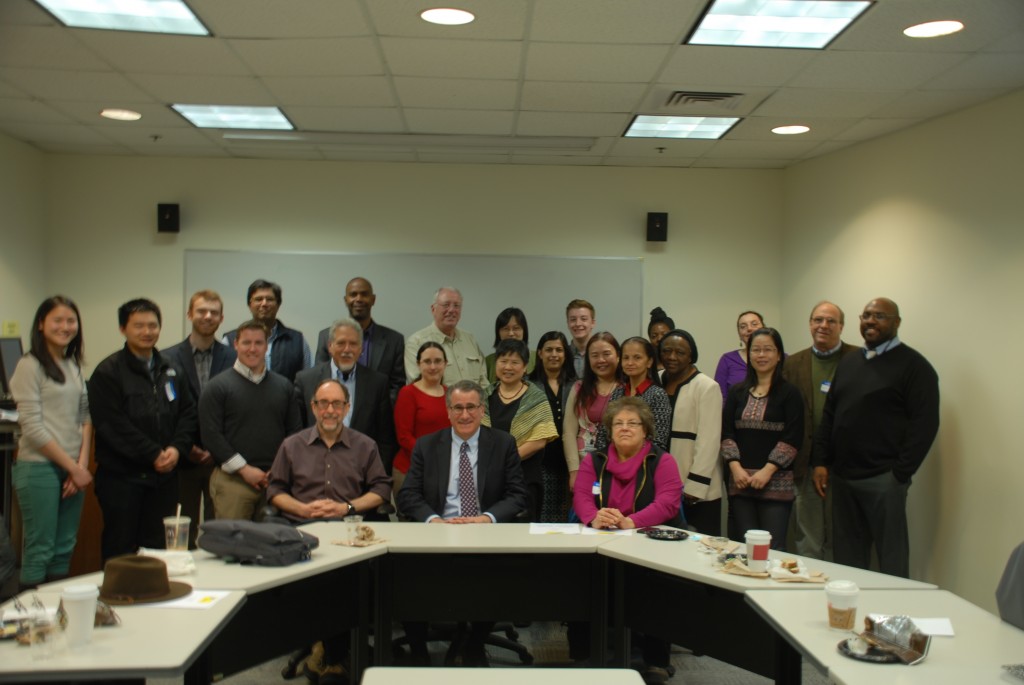 Tisch College has long invested in research partnerships between Tufts scientists and community-based organizations. These partnerships produce valuable scientific knowledge and strengthen the capacity of partner organizations. Moreover, they provide unique learning opportunities for students and they concretely improve communities.
Tisch College has long invested in research partnerships between Tufts scientists and community-based organizations. These partnerships produce valuable scientific knowledge and strengthen the capacity of partner organizations. Moreover, they provide unique learning opportunities for students and they concretely improve communities.
A major means for supporting such work is the Tisch College Community Research Center (TCRC). Its signature project is the Community Assessment of Freeway Exposure and Health (CAFEH), a years-long public health study that continues to produce innovative, impactful scholarship.
More than a decade ago, Somerville residents approached Doug Brugge, a professor of public health at the Tufts University School of Medicine, about their concerns regarding pollution from Interstate-93 (I-93). From initial meetings about technical consulting, a plan emerged to write a grant and do some research on the issue. With seed funding from the TCRC, Brugge, John Durant from the Tufts University School of Engineering, and partners in Somerville and Boston’s Chinatown wrote an NIH grant proposal that would result in the launch of CAFEH.
CAFEH was a five-year, multimillion dollar study funded by the National Institute for Environmental Health Sciences. “From its inception, it was a community-based participatory research study in which community partners were full members of the research team and were involved in virtually all aspects of the work, ” says Brugge. Building on the initial grant, the project added numerous other grants and related projects.
The early work of CAFEH demonstrated that elevated levels of ultrafine particles next to highways and major roadways are associated with a higher risk of heart attack and stroke. This appears to be the first demonstration of a risk to residents near highways from this type of air pollution.
Beyond the main findings, CAFEH has also been a highly productive academic endeavor, with about 30 published articles in peer-reviewed journals—many in top publications. But CAFEH has also sought, and has begun to have, some real-world impact as its scientific findings strive to inform policy and practice. One prominent example is the development of a protective zoning ordinance currently under consideration by the City of Somerville.
 “Our communities now offer opportunities to develop and test interventions that may protect people from traffic-related pollution, especially the ultrafine particles that CAFEH studied so carefully,” says Brugge. This past summer, the CAFEH team, led by co-principal investigator (and TCRC member) Ellin Reisner of the Somerville Transportation Equity Partnership, secured a new five-year grant of over $2 million that will advance the study’s mission of finding ways to protect near-highway communities, in this case by improving air filtration in multifamily housing and in schools.
“Our communities now offer opportunities to develop and test interventions that may protect people from traffic-related pollution, especially the ultrafine particles that CAFEH studied so carefully,” says Brugge. This past summer, the CAFEH team, led by co-principal investigator (and TCRC member) Ellin Reisner of the Somerville Transportation Equity Partnership, secured a new five-year grant of over $2 million that will advance the study’s mission of finding ways to protect near-highway communities, in this case by improving air filtration in multifamily housing and in schools.
As CAFEH enters its second decade of civically engaged research between Tufts University and local communities, it remains an exemplary project demonstrating the promise and the value of community-based participatory research and, more broadly, of Tisch College’s work promoting innovative scholarship that addresses community needs. “Tisch College’s seed grant and support for subsequent proposals and events have been crucial to the development of CAFEH, and Tisch College’s expertise in, and infrastructure for, community/university collaborations remains an integral part of the study’s success,” says Brugge.


















